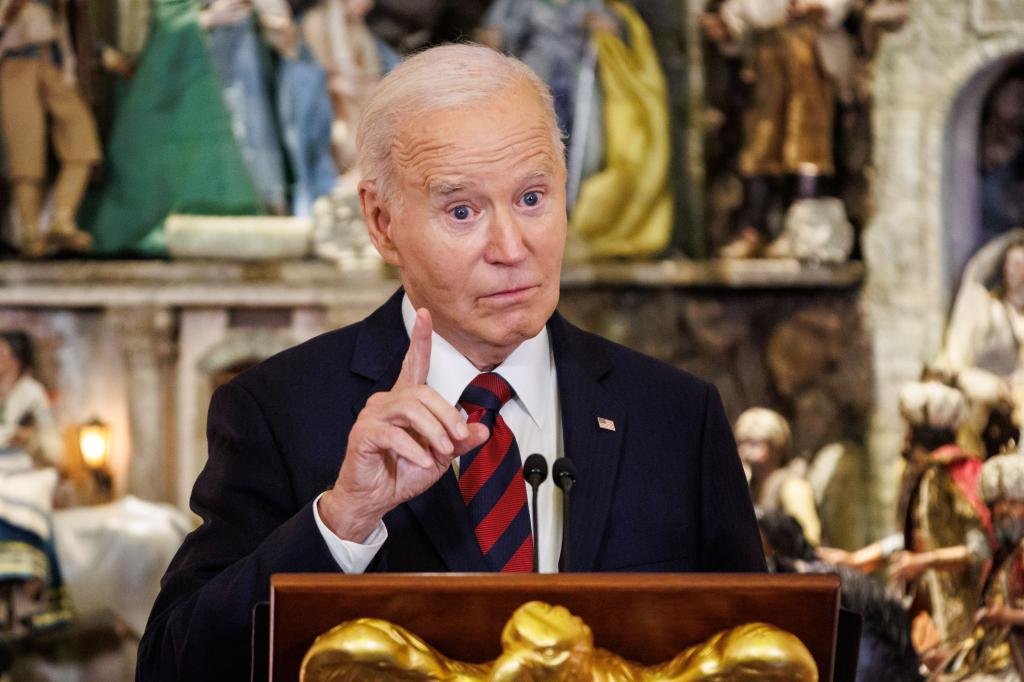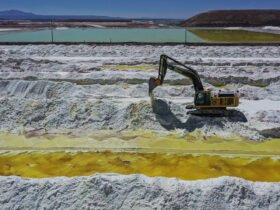President Biden is commuting the sentences of about 1,500 people released from prison and placed on home confinement during the coronavirus pandemic and pardoning 39 Americans convicted of nonviolent crimes.
It is the largest single-day clemency measure in modern history.
The commutations announced on Thursday are intended for people who have served at least a year of house arrest after their release.
Prisons have been particularly bad for the spread of the virus, and some prisoners were partially released to stop the spread.
At one point, 1 in 5 inmates had COVID-19, according to a tally by the Associated Press.
Biden said he would take more steps in the coming weeks and continue to review clemency requests.
The second-largest act of clemency in a single day was committed by President Barack Obama, with 330, shortly before he left office in 2017.
“America was built on the promise of possibility and second chances,” Biden said in a statement. “As President, I have the great privilege of extending mercy to those who have shown repentance and rehabilitation, giving Americans the opportunity to participate in everyday life and contributing to their communities, and taking steps to eliminate disparities in to eliminate sentencing for non-violent offenders, especially those convicted of drug offenses.”
The clemency follows a broad pardon for his son Hunter, who was prosecuted for weapons and tax crimes.
Biden is under pressure from advocacy groups to pardon large groups of people, including those on federal death row, before the Trump administration takes over in January.
He is also considering whether to grant preemptive pardons to those who investigated Trump’s efforts to overturn the results of the 2020 presidential election and who face possible retaliation if he comes to power.
Those pardoned Thursday were convicted of nonviolent crimes such as drug offenses and turned their lives around, White House lawyers said.
They include a woman who led emergency response teams during natural disasters; a church deacon who has worked as an addiction counselor and youth counselor; a doctoral student in molecular biosciences; and a decorated military veteran.
The president had previously granted 122 commutations and 21 other pardons.
He has also pardoned those convicted of marijuana use and possession on federal lands and in the District of Columbia, and pardoned former U.S. service members convicted of violating a now-repealed military ban on consensual gay sex .
Rep. Jim McGovern (D-Mass.) and 34 other lawmakers are urging the president to pardon environmental and human rights attorney Steven Donziger, who was jailed or under house arrest for three years on contempt of court charges in connection with his work representing Indigenous farmers in a lawsuit against Chevron.
Others are calling for Biden to commute the sentences of federal death row inmates. His attorney general, Merrick Garland, has halted federal executions.
Biden had said on the campaign trail in 2020 that he wanted to end the death penalty, but he never did, and with Trump returning to power, executions are likely to resume. During his first term, Trump presided over an unprecedented number of federal executions, carried out during the height of the pandemic.
Getty Images
More pardons are coming before Biden leaves office on Jan. 20, but it is not clear whether he will take action to protect himself from possible prosecution by Trump, an untested use of his power.
The president has taken the idea seriously and has been considering it for six months — before the presidential election — but worried about the precedent it would set, according to people familiar with the matter who spoke to The Associated Press. on condition of anonymity to discuss internal discussions.
But those who received the pardon should accept it. New California Senator Adam Schiff, chairman of the House committee investigating the January 6 violent insurrection, said such a pardon from Biden would be “unnecessary” and that the president should not spend his final days in office with worrying about this.
A president has the power to both grant a pardon, which absolves a person of guilt and punishment, and to commute a sentence, which reduces or eliminates the punishment but does not erase the misconduct. It is common for a president to grant clemency at the end of his term, using the power of the office to wipe away documents or end prison sentences.
Before pardoning his son, Biden had repeatedly promised not to do so.
He said in a statement explaining his reversal that the prosecution had been poisoned by politics. The decision prompted criminal justice advocates and lawmakers to put additional public pressure on the government to use the same power on ordinary Americans. It wasn’t a very popular move: Only about 2 in 10 Americans approved of his decision, according to a poll by the Associated Press-NORC Center for Public Affairs Research.












Leave a Reply